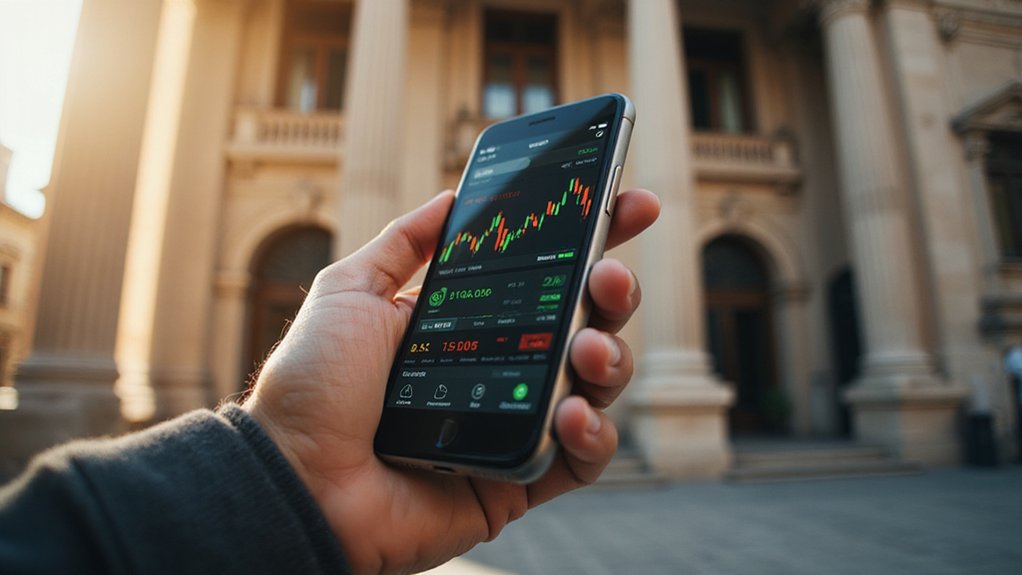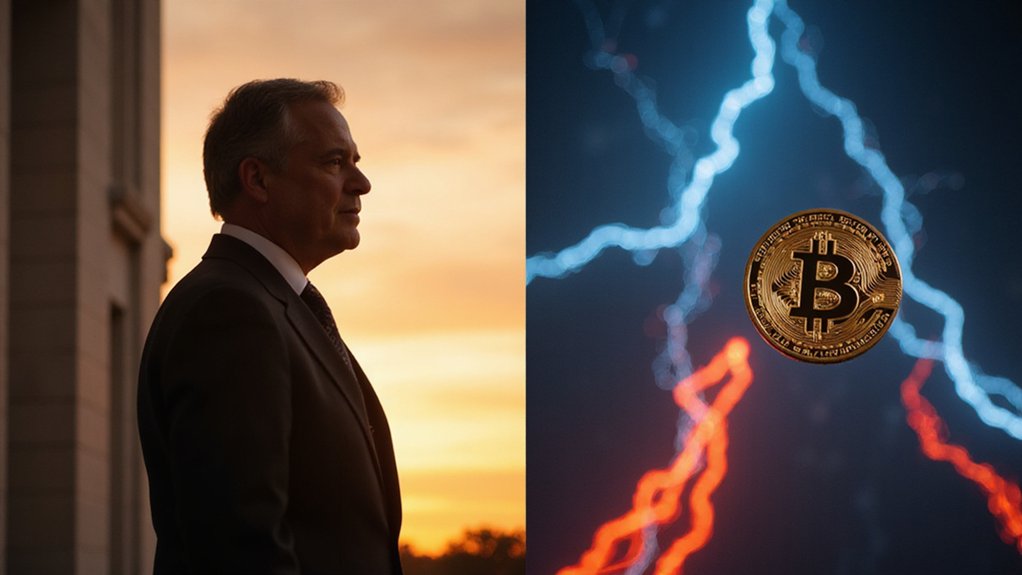In a move that would have seemed fantastical to banking traditionalists just a decade ago, BBVA has seamlessly integrated Bitcoin and Ether trading directly into its retail mobile banking app across Spain, allowing customers to buy, sell, and custody cryptocurrencies alongside their mortgage payments and grocery receipts.
The Spanish launch represents BBVA’s third foray into crypto markets (following Switzerland in 2021 and Turkey in 2023), though this marks the first direct retail offering without intermediary requirements—a distinction that fundamentally democratizes access beyond the traditional private banking clientele who could previously afford such exotic financial adventures.
BBVA’s Spanish crypto integration democratizes digital asset access beyond exclusive private banking circles for the first time.
The service operates under the European Union’s Markets in Crypto-Assets (MiCA) regulation, providing the kind of investor protections that crypto enthusiasts once dismissed as antithetical to their decentralized ethos.
What distinguishes BBVA’s approach is their decision to maintain in-house custody control rather than outsourcing to third parties—a choice that reflects either admirable confidence in their security infrastructure or a healthy skepticism about entrusting digital assets to external custodians.
The bank’s application to Spain’s National Securities Market Commission (CNMV) in March 2025 preceded this rollout, demonstrating the regulatory compliance that has become increasingly vital as crypto markets mature beyond their Wild West origins.
The integration leverages BBVA’s existing mobile banking infrastructure, creating a user experience where customers can manage Bitcoin positions with the same casual efficiency they might apply to checking account balances.
This seamless accessibility represents a significant shift from the technical barriers that once made cryptocurrency trading the exclusive domain of tech-savvy investors willing to navigate complex exchanges and wallet management protocols.
Notably, BBVA explicitly disclaims providing investment advice on cryptocurrencies, placing responsibility squarely on clients’ shoulders—a prudent stance given the volatile nature of digital assets and the bank’s fiduciary obligations.
The gradual rollout guaranteed stable integration with existing banking systems, reflecting the institutional caution that crypto purists might find ironically reassuring. BBVA’s over a decade of blockchain technology experience provided the technical foundation necessary for this comprehensive retail crypto service launch.
This development signals retail banking’s evolution toward extensive digital asset services, transforming what was once a fringe investment category into another routine banking product available through familiar channels. As the crypto space continues to evolve, banks must remain vigilant about cybersecurity threats that particularly target cryptocurrency holdings and trading platforms. Francisco Maroto has announced plans for future additions to include new cryptocurrencies, stablecoins, and tokenized real-world assets.








